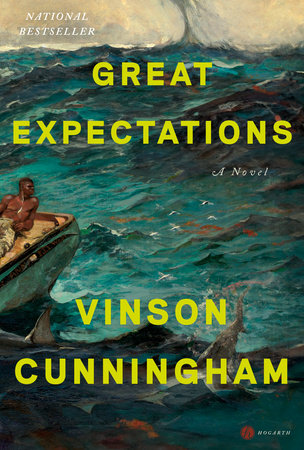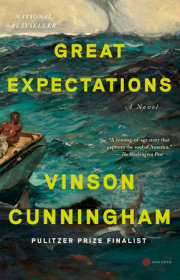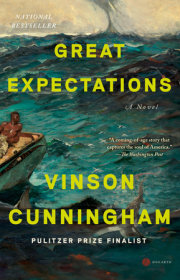1
I’d seen the Senator speak a few times before my life got caught up, however distantly, with his, but the first time I can remember paying real attention was when he delivered the speech announcing his run for the presidency. He spoke before the pillars of the Illinois statehouse, where, something like a century and a half earlier, Abraham Lincoln had performed the same ritual. The Senator brought his elegant wife and young daughters onstage when he made his entrance. A song by U2 played as they waved. All four wore long coats and breathed ghosts of visible vapor into the cold February morning. It was as frigid and sunny out there in Springfield as it was almost a thousand miles away, where I sat alone, hollering distance from the northern woods of Central Park, watching the Senator on TV.
“Giving all praise and honor to God for bringing us together here today,” he began. I recognized that black-pulpit touch immediately, and felt almost flattered by the feeling—new to me—of being pandered to so directly by someone who so nakedly wanted something in return. It was later reported that he had spent the moments before the address praying in a circle with his family and certain friends, including the light-skinned stentor who was his pastor in Chicago. Perhaps the churchy greeting was a case of spillover from the sound of the pastor’s prayer. Or—and from the vantage of several years, this seems by far the likelier answer—the Senator had begun, even then, at the outset of his campaign, to understand his supporters, however small their number at that point, as congregants, as members of a mystical body, their bonds invisible but real. They waved and stretched their arms toward the stage; some lifted red, white, and blue signs emblazoned with his name in a sleek sans serif. The whole thing seemed aimed at making you cry.
I wonder now (this, again, with all the benefit and distortion of hindsight) whether these first words of the campaign and their hungry reception by the crowd were the sharpest harbinger—more than demography or conscious strategy—of the victory to come. Toward the end of the speech, during a stream of steadily intensifying clauses whose final pooling was a plea to join him in the work of renewal, he wondered “if you”—the assembled—“feel destiny calling.” In bidding goodbye, he said, “Thank you,” and then, more curiously, “I love you.”
Despite his references, overt and otherwise, to Lincoln—and, more gingerly, to King—his closer resemblance was to John Winthrop making phrases on the ship
Arbella, assuring his fellow travelers that the religion by whose light they’d left Europe in 1630 could cross spheres, from the personally salvific to the civic and concrete. If you could love God and love your neighbor, Winthrop promised, you could build a city, too, and that city could be a great monument to the Beloved. That swift motion—God to
polis and back up, shiningly, to God—made Winthrop an unintentional paganizer. His attempt to subjugate politics to sacred things had only, over time, made the holy more worldly, more easily used by the likes of the Senator. I was only freewheelingly guessing; feeling bright, disconnected, and experimental; trying to bring a few loose intimations into closer communion with one another—but I thought I sensed a quality similar to Winthrop’s in the Senator. Or maybe, I thought, doubling back as I’ve always done, he was the well-developed melody of which Winthrop was the earliest theme. The Senator had invoked God at the top of his text, a numbingly common move in these settings, and sounded comfortable, even natural, doing it, which was becoming somewhat more rare. He seemed to have resolved an older generation’s jittery and overscrupulous tension about church and state. He’d figured out how to say aloud and with good cheer and without seeming to be some nationalist-imperialist pervert what had been implicit for too long: that now we had a country that could more or less plausibly claim—as much by dint of its world-shredding misdeeds as by its misty glories—not to serve God but to
be God. Render unto Caesar and rest your conscience. Without any off-putting intensity, the Senator insisted, above all, on faith. “In my heart I know you didn’t just come here for me,” he said. “You came here because you
believe in what this country can be.”
“Your Love Keeps Lifting Me” played him off the stage. The campaign, just beginning, was still a scarcely glimpsed frontier. I can’t say that I thought he would win.
I realize only now, too late for it to matter much, that the Senator reminded me of my pastor, who had died not long before the beginning of the campaign and, in those days, was often on my mind. Both men were tall and skinny, both hooked their thumbs slightly and used their other outstretched fingers as scythes cutting syntax into the air. Both had the complexion of a cardboard box left out to bleach in the sun. The pastor wore glasses, like I did, but the Senator didn’t. Both had smooth, flexible voices that could sound rough in a pinch. Their similarities aside, though, that enigmatic word—
destiny—must have put me in mind of my pastor, too. I can remember one Friday night, many years earlier—I must have been twelve—at a Bible-study session in the former Elks lodge in Harlem where our church held its services. My pastor had slowly paced the two long aisles of the church. Wearing a zip-up sweater and soft slacks instead of his Sunday robes, he gave a long disquisition on a topic he loved: the many ways in which the future belonged to God. We believed in predestination, he said, not in destiny; the latter word, despite what it shared in etymology with the former, contained no implication of an Author, and had therefore been co-opted by the squishy New Age. As he talked, he held the microphone loosely but securely, like how good tennis players hold the racket. He looked around the room, catching gazes and letting them drop, smiling prettily even as he unfolded mysteries that terrified me. The truth, he said, was that your life—and
this was freedom—was a gesture minutely choreographed by God. To seek salvation required free will, but the one who had planted, and could count, the hairs on your head had also engineered your mechanisms of choice. Your heart could open only if He’d given it a hinge. He chose you before you chose Him, and so it was with every other eventuality, no matter how hidden or seemingly accidental. You are not
lucky, my mother often said, you are
blessed.
Copyright © 2024 by Vinson Cunningham. All rights reserved. No part of this excerpt may be reproduced or reprinted without permission in writing from the publisher.












